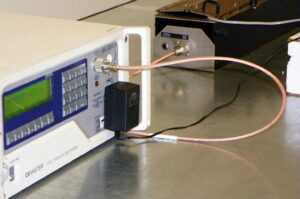
Wireless Electronics And EMC Testing
EMC testing, or Electromagnetic Compatibility testing, is the process of evaluating and verifying electronic devices, particularly wireless electronics, to ensure their compliance with regulations and standards related to electromagnetic emissions and immunity. At hbcompliance solution, we specialize in providing comprehensive EMC testing services to ensure that your electronic products meet the required standards and regulations, enabling you to bring reliable and compliant devices to market.
What Is EMC TESTING?
EMC stands for electromagnetic compatibility, and it refers to the ability of electronic devices to operate properly in their intended environment.
How To Pass EMC TESTING
EMC Testing is a complex process and requires the right knowledge, experience, and equipment. HBCS can help you pass your EMC tests and gain approval for your product.
HBCS can help you pass EMC tests with our experience and expertise in this field. We offer complete compliance solutions including consulting, testing, certification, training, and auditing services. We have worked with companies from all over the world at all stages of development – from start-ups to multinational corporations – helping them achieve their goals without compromising on quality or compliance standards.
Electronic Testing Basics
Electronic testing and certification are becoming increasingly important in today’s global market. In order to sell your product overseas and keep up with the ever-increasing demand for electronics, you will need to have your products tested and certified by an independent third party.
The Top 5 Tips For Acing The EMC TESTING
EMC testing is crucial for wireless electronics for several reasons:
- Regulatory Compliance: Wireless electronics need to adhere to specific regulations and standards set by government agencies and industry bodies. These regulations ensure that electronic devices do not interfere with other devices or the electromagnetic environment. EMC testing verifies compliance with these standards and helps ensure that wireless electronics meet the required levels of electromagnetic emissions and immunity.
- Avoidance of Interference: Wireless electronics, by their nature, transmit and receive electromagnetic signals. If not properly designed and tested, they can emit unwanted electromagnetic interference (EMI) that can disrupt the functioning of other devices in their proximity. EMC testing helps identify and mitigate such interference issues, ensuring that wireless devices operate without causing disruption to other electronic systems.
- Reliable Performance: EMC testing is essential to ensure the reliable performance of wireless electronics in real-world scenarios. It helps assess the device’s resilience to external electromagnetic disturbances, such as radio frequency (RF) signals from other devices, power lines, or industrial equipment. By subjecting the device to controlled electromagnetic environments during testing, potential vulnerabilities and weaknesses can be identified and addressed, leading to improved performance and reliability. Adhering to standards set by organizations like ETSI (European Telecommunications Standards Institute)organization standards ensures that the testing process aligns with industry-recognized benchmarks, enhancing the overall quality and compliance of wireless electronic devices.
- Safety Considerations: Some wireless electronics, such as medical devices, must meet stringent safety requirements. EMC testing helps ensure that these devices operate safely and do not pose any hazards to users or patients. It verifies that the device’s electromagnetic emissions are within acceptable limits and that it remains immune to external electromagnetic disturbances that could compromise its safety.
- Market Acceptance and Customer Confidence: Compliance with EMC standards and successful EMC testing can enhance market acceptance and customer confidence in wireless electronics. Demonstrating compliance through proper testing provides assurance to customers that the device has been thoroughly evaluated and is likely to perform as intended without causing interference or safety risks.
Cigarbox EMC & FCC Compliance Testing
Cigarbox EMC & FCC Compliance Testing, a division of HBCS, has been providing compliance services to companies for over 20 years. We offer a full range of compliance services to help you get your product to market without worrying about it being rejected for non-compliance. We can assist you with EMI/EMC testing, wireless testing, consulting, and product safety, as well as environmental testing. If you’re seeking a cost-effective FCC certification lab, you may inquire, “WHERE CAN I FIND A LOW COST FCC CERTIFICATION LAB?” for guidance on affordable and reliable testing solutions.
We have experience working with many different types of products, including medical devices and gaming equipment. Our goal is to be your internal compliance group so that you never have to worry about getting your products through all the necessary approvals!
A Simple EM Calibration Method For Correctly Measuring EMC Emissions From Wireless Devices
With the advent of wireless devices, we have seen an increase in the use of electromagnetic emissions (EM) testing. This is because many wireless devices are now used in industrial environments and require compliance certification to ensure they do not interfere with other devices.
However, EM emissions can vary significantly due to factors such as environmental conditions and the time of day. These variations make it difficult for companies to accurately measure EM emissions from their products without investing heavily in expensive equipment.
To help solve this problem, HBCS has developed a simple calibration method that allows companies to accurately measure EM emissions from their products using only a standard oscilloscope and an IEC 61750-3 compliant measuring equipment.
In summary, EMC testing for wireless electronics is important to ensure regulatory compliance, avoid interference issues, guarantee reliable performance, address safety considerations, and instill confidence in customers and the market.
